- Home
- Anne Frasier
The Body Counter
The Body Counter Read online
PRAISE FOR NEW YORK TIMES AND USA TODAY BESTSELLING AUTHOR ANNE FRASIER
“Frasier has perfected the art of making a reader’s skin crawl.”
—Publishers Weekly
“A master.”
—Minneapolis Star Tribune
“Anne Frasier delivers thoroughly engrossing, completely riveting suspense.”
—Lisa Gardner
“Frasier’s writing is fast and furious.”
—Jayne Ann Krentz
PRAISE FOR THE BODY READER
Winner of the International Thriller Writers 2017 Thriller Award for Best Paperback Original
“Absorbing.”
—Publishers Weekly
“This is an electrifying murder mystery—one of the best of the year.”
—Mysterious Reviews
“I see the name Anne Frasier on a book and I know I am in for a treat . . . I thought it was a very unique premise and coupled with the good characters, made for an almost non-stop read for me. I highly recommend this.”
—Pure Textuality
“The Body Reader earned its five stars, a rarity for me, even for books I like. Kudos to Anne Frasier.”
—The Wyrdd and the Bazaar
“A must read for mystery suspense fans.”
—Babbling About Books
“I’ve long been a fan of Anne Frasier, but this book elevates her work to a whole new level, in my mind.”
—Tale of a Shooting Star
PRAISE FOR PLAY DEAD
“This is a truly creepy and thrilling book. Frasier’s skill at exposing the dark emotions and motivations of individuals gives it a gripping edge.”
—RT Book Reviews
“Play Dead is a compelling and memorable police procedural, made even better by the way the characters interact with one another. Anne Frasier will be appreciated by fans who like Kay Hooper, Iris Johansen and Lisa Gardner.”
—Blether: The Book Review Site
“A nicely constructed combination of mystery and thriller. Frasier is a talented writer whose forte is probing into the psyches of her characters, and she produces a fast-paced novel with a finale containing many surprises.”
—I Love a Mystery
“Has all the essentials of an edge-of-your-seat story. There is suspense, believable characters, an interesting setting, and just the right amount of details to keep the reader’s eyes always moving forward . . . I recommend Play Dead as a great addition to any mystery library.”
—Roundtable Reviews
PRAISE FOR PRETTY DEAD
“Besides being beautifully written and tightly plotted, this book was that sort of great read you need on a regular basis to restore your faith in a genre.”
—Lynn Viehl, Paperback Writer (Book of the Month)
“By far the best of the three books. I couldn’t put my kindle down till I’d read every last page.”
—NetGalley
PRAISE FOR HUSH
“This is by far and away the best serial killer story I’ve read in a long time . . . strong characters, with a truly twisted bad guy.”
—Jayne Ann Krentz
“I couldn’t put it down. Engrossing . . . scary . . . I loved it.”
—Linda Howard
“A deeply engrossing read, Hush delivers a creepy villain, a chilling plot, and two remarkable investigators whose personal struggles are only equaled by their compelling need to stop a madman before he kills again. Warning: don’t read this book if you are home alone.”
—Lisa Gardner
“A wealth of procedural detail, a heart-thumping finale, and two scarred but indelible protagonists make this a first-rate read.”
—Publishers Weekly
“Anne Frasier has crafted a taut and suspenseful thriller.”
—Kay Hooper
“Well-realized characters and taut, suspenseful plotting.”
—Minneapolis Star Tribune
PRAISE FOR SLEEP TIGHT
“Guaranteed to keep you awake at night.”
—Lisa Jackson
“There’ll be no sleeping after reading this one. Laced with forensic detail and psychological twists.”
—Andrea Kane
“Gripping and intense . . . Along with a fine plot, Frasier delivers her characters as whole people, each trying to cope in the face of violence and jealousies.”
—Minneapolis Star Tribune
“Enthralling. There’s a lot more to this clever intrigue than graphic police procedures. Indeed, one of Frasier’s many strengths is her ability to create characters and relationships that are as compelling as the mystery itself. Will linger with the reader after the killer is caught.”
—Publishers Weekly
PRAISE FOR THE ORCHARD
“Eerie and atmospheric, this is an indie movie in print. You’ll read and read to see where it is going, although it’s clear early on that the future is not going to be kind to anyone involved. Weir’s story is more proof that only love can break your heart.”
—Library Journal
“A gripping account of divided loyalties, the real cost of farming and the shattered people on the front lines. Not since Jane Smiley’s A Thousand Acres has there been so enrapturing a family drama percolating out from the back forty.”
—Maclean’s
“This poignant memoir of love, labor, and dangerous pesticides reveals the terrible true price.”
—Oprah Magazine (Fall Book Pick)
“Equal parts moving love story and environmental warning.”
—Entertainment Weekly (B+)
“This is one of the loveliest books I have ever read, it reaches into the very heart of the word love and exemplifies its meaning with an unbelievable depth of understanding.”
—Cover Me
“While reading this extraordinarily moving memoir, I kept remembering the last two lines of Muriel Rukeyser’s poem ‘Kathe Kollwitz’ (‘What would happen if one woman told the truth about her life? / The world would split open’), for Weir proffers a worldview that is at once eloquent, sincere, and searing.”
—Library Journal (Librarians’ Best Books of 2001)
“An unforgettable story . . . This story of hardship and suffering, and love and hope pretty much stole my heart.”
—Rhapsody in Books
“She tells her story with grace, unflinching honesty and compassion all the while establishing a sense of place and time with a master story teller’s perspective so engaging you forget it is a memoir.”
—Calvin Crosby, Books Inc. (Berkeley, CA)
“One of my favorite reads of 2011, The Orchard is easily mistakable as a novel for its engaging, page-turning flow and its seemingly imaginative plot.”
—Susan McBeth, founder and owner of Adventures by the Book, San Diego, CA
“Moving and surprising.”
—The Next Chapter (Fall 2011 Top 20 Best Books)
“Searing . . . the past is artfully juxtaposed with the present in this finely wrought work. Its haunting passages will linger long after the last page is turned.”
—Boston Globe (Pick of the Week)
“If a writing instructor wanted an excellent example of voice in a piece of writing, this would be a five-star choice!”
—San Diego Union Tribune (Recommended Read)
“The truths she lays bare about the life of a farm and the farmers who work it are both simple and, dare I say it, profound.”
—Madison Public Library (Madison, WI)
“This book produced a string of emotions that had my hand flying up to my mouth time and again, and not only made me realize, ‘This woman can write!’ but also made me appreciate the importance of this book, and how it reaches far beyond Weir’s own story.”
—Li
nda Grana, Diesel, a Bookstore
“The Orchard is a lovely book in all the ways that really matter, one of those rare and wonderful memoirs in which people you’ve never met become your friends.”
—Nicholas Sparks
“A hypnotic tale of place, people, and of Midwestern family roots that run deep, stubbornly hidden, and equally menacing.”
—Jamie Ford, New York Times bestselling author of Hotel on the Corner of Bitter and Sweet
ALSO BY ANNE FRASIER
Hush
Sleep Tight
Before I Wake
Pale Immortal
Garden of Darkness
The Jude Fontaine Series
The Body Reader
The Elise Sandburg Series
Play Dead
Stay Dead
Pretty Dead
Truly Dead
Nonfiction (as Theresa Weir)
The Orchard: A Memoir
The Man Who Left
This is a work of fiction. Names, characters, organizations, places, events, and incidents are either products of the author’s imagination or are used fictitiously. Any resemblance to actual persons, living or dead, or actual events is purely coincidental.
Text copyright © 2018 by Theresa Weir
All rights reserved.
No part of this book may be reproduced, or stored in a retrieval system, or transmitted in any form or by any means, electronic, mechanical, photocopying, recording, or otherwise, without express written permission of the publisher.
Published by Thomas & Mercer, Seattle
www.apub.com
Amazon, the Amazon logo, and Thomas & Mercer are trademarks of Amazon.com, Inc., or its affiliates.
ISBN-13: 9781503900981
ISBN-10: 1503900983
Cover design by PEPE nymi
CONTENTS
CHAPTER 1
CHAPTER 2
CHAPTER 3
CHAPTER 4
CHAPTER 5
CHAPTER 6
CHAPTER 7
CHAPTER 8
CHAPTER 9
CHAPTER 10
CHAPTER 11
CHAPTER 12
CHAPTER 13
CHAPTER 14
CHAPTER 15
CHAPTER 16
CHAPTER 17
CHAPTER 18
CHAPTER 19
CHAPTER 20
CHAPTER 21
CHAPTER 22
CHAPTER 23
CHAPTER 24
CHAPTER 25
CHAPTER 26
CHAPTER 27
CHAPTER 28
CHAPTER 29
CHAPTER 30
CHAPTER 31
CHAPTER 32
CHAPTER 33
CHAPTER 34
CHAPTER 35
CHAPTER 36
CHAPTER 37
CHAPTER 38
CHAPTER 39
CHAPTER 40
CHAPTER 41
CHAPTER 42
CHAPTER 43
CHAPTER 44
CHAPTER 45
CHAPTER 46
CHAPTER 47
CHAPTER 48
CHAPTER 49
CHAPTER 50
CHAPTER 51
CHAPTER 52
CHAPTER 53
CHAPTER 54
CHAPTER 55
ABOUT THE AUTHOR
CHAPTER 1
The woman in the apartment upstairs was screaming again.
These weren’t your normal screams, if any scream could be considered normal. They weren’t screams of sexual delight or screams of surprise. These were sounds of terror, pain, fear, so bloodcurdling that the first time Elliot heard them he’d called 911.
Cops had arrived with sirens and flashing lights and boots on the stairs. Shouts, then quiet conversation from above. Once it was over, an officer had knocked on Elliot’s door. “Everything’s fine,” one of them had said.
“Is someone hurt?” Elliot had asked. Or worse: “Dead?”
“Just a bad dream.”
Bad dream. That had been a helluva bad dream.
One of many, it seemed, because the screams became so frequent he started keeping a broom next to his bed. When the screaming started, he’d knock the wooden handle against the ceiling. The sounds of terror would stop and he’d go back to sleep.
The woman’s name was Jude Fontaine, and she was a detective. Whenever Elliot ran into her in the lobby, she’d give him a slight smile and sometimes even say hello. But that hello didn’t welcome more. That hello didn’t welcome scrutiny or an invitation to stop by for coffee. In fact, Elliot couldn’t imagine Detective Fontaine sitting at his kitchen counter eating cookies and talking about books or movies or music.
And yet . . .
Elliot understood some of what she was going through. Like everybody in Minneapolis and beyond, he knew her history. Knew about the three captive years of rape and torture, and her subsequent escape. If she’d seemed the least bit willing to talk, Elliot might have shared a little of his own unusual childhood. Instead, he watched the detective from a distance and wondered if she’d be okay, at the same time doubting she would.
Now, with resignation and a conditioned reaction, he reached for the broom and banged it against the ceiling. A couple minutes later he heard a ringing phone, followed by footsteps, a softly closing door, and the sound of someone in the stairwell. He drifted off, but was jolted awake again by the roar of a motorcycle exiting the parking garage.
Jude Fontaine had left the building.
CHAPTER 2
An hour earlier
The final credits rolled in the dark indie theater. Mitchell stood near the exit and moved his flashlight beam back and forth between the three remaining moviegoers, all men, who were spread evenly throughout the cavernous space, the narrow ray of light illuminating the backs of their heads. Mitchell’s main job was to make sure people weren’t kissing or even having sex during the screening, but he was also responsible for kicking out the ones who fell asleep. His mom called the place a dive, but the owner didn’t have the money to fix it up.
He cleared his throat. “Show’s over. Please exit the theater.”
None of them responded.
He hated this part. He was barely old enough to drive, and here he was kicking out adults, often adults who were either too wasted to walk or so wasted they wanted to fight.
He gave his red usher vest a tug and moved down the aisle, clicking the flashlight to high and shining it in the face of the nearest guy. He was slumped forward, the front of his pale-green T-shirt soaked with something dark and red. Mitchell’s heart pounded, then settled down. His initial alarm made him feel stupid. Performance art, right? Fake blood, right? There was some locally famous artist who was always doing that crazy shit. Mitchell didn’t know much about the guy, because he seemed to like to create mystery about himself, but girls Mitchell’s age were apparently really into him.
He redirected the beam across the width of the theater, shining it on the other two moviegoers. Unmoving, chins down.
Heavy sigh. “I don’t want to call the cops,” he told the man a couple of feet from him, “but I will. Come on, buddy.” He shook the man’s shoulder, easily at first, then harder. The jostling made the guy’s head flip back like a Pez dispenser.
An ocean roared between Mitchell’s ears, and his legs went weak. The man’s throat had been sliced. He swore he could see arteries—and what looked like a spine. And now he realized he could actually smell blood.
The flashlight dropped from his hand and rolled slowly under the seats, the handle hitting chair legs every so often on the way down. Mitchell shouted over his shoulder, hoping the projectionist or the other usher would hear. “Turn on the overheads!”
Someone flipped the switch and the room went dull-bright, revealing the shabby seats and the concession cups littering the floor. The other usher must’ve heard Mitchell’s shout, because he appeared in the back of the theater with a bored look on his face, candy bar in his hand.
> The flashlight finally stopped rolling.
“Call the cops.” Mitchell’s voice was tight and weird, and an acidic taste filled his mouth. He’d call the cops himself but he was afraid he was going to throw up.
Not getting that this was serious, the coworker said, “Just make ’em leave.”
Mitchell’s eyes latched on to a popcorn bucket on the floor as he looked for comfort in the mundane. “They can’t!”
The hysteria in his voice must have finally given the other usher a clue, because he pulled out his phone, suddenly sounding nervous. “What should I tell them?”
“Tell them three guys are dead!” Mitchell thought about all the people who’d trailed past him in the dark on their way out of the theater. One of them had done this. One of them had committed murder while the lights were off. Mitchell himself had maybe even torn the person’s ticket. And then he wondered if he was in danger. The cops would ask if he’d noticed anybody suspicious and he’d say no, but the killer might think he could identify him.
While the coworker made the call, Mitchell grabbed the empty popcorn container from the floor and threw up in it. Then he took a photo of the nearest body.
CHAPTER 3
It was after midnight as Jude leaned low over the motorcycle, roaring down I-94 in the direction of the homicide. It wasn’t like her to ride without a helmet, but she couldn’t wear a full face mask tonight, not with the claustrophobia of her dream lingering in the corners of her brain. Strange to welcome murder, but she’d been relieved to hear Uriah’s voice on the phone, telling her she was needed. Just minutes before her partner’s call, the person in the apartment below had banged against his ceiling and Jude had come awake sweating, heart pounding. Over the past weeks, that same neighbor had made a few feeble attempts to strike up a conversation in the hallway, but Jude had effectively shut him down. What could she say? Sorry my screams wake you?
Two months had passed since the shoot-out on the interstate. Two months since Jude killed her estranged father and brother to save her partner and a kidnapping victim named Octavia. And even though there was solid proof of their guilt in several murders, including the murder of Jude’s own mother, many in the area refused to believe that the governor—Jude’s father—had been behind such atrocities. After all, the man had posed for photos with their babies and comforted them in times of personal tragedy.

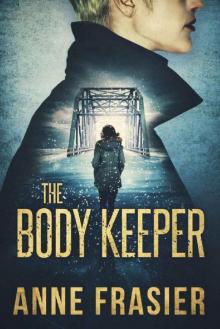 The Body Keeper
The Body Keeper Hush
Hush Play Dead
Play Dead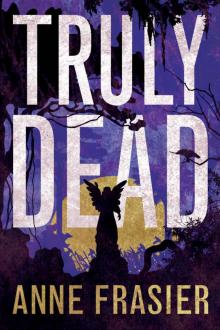 Truly Dead
Truly Dead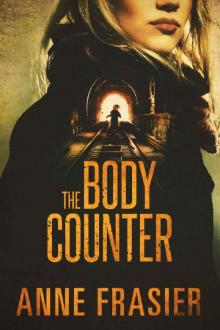 The Body Counter
The Body Counter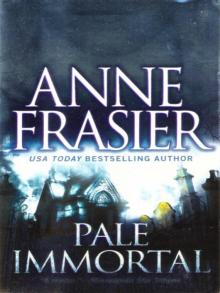 Pale Immortal
Pale Immortal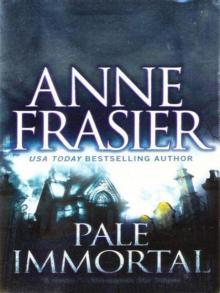 (2006) Pale Immortal
(2006) Pale Immortal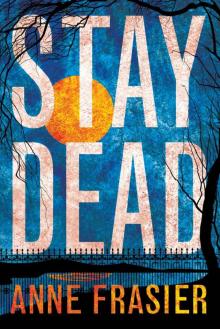 Stay Dead (Elise Sandburg series)
Stay Dead (Elise Sandburg series) Sleep Tight
Sleep Tight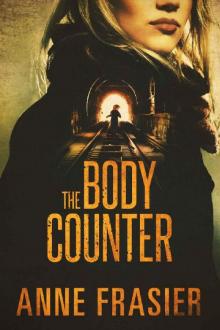 The Body Counter (Detective Jude Fontaine Mysteries Book 2)
The Body Counter (Detective Jude Fontaine Mysteries Book 2)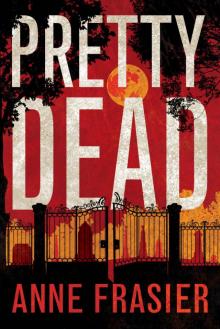 Pretty Dead
Pretty Dead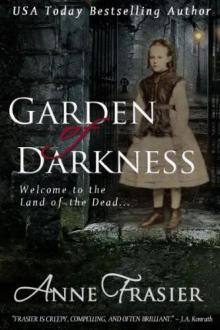 Garden of Darkness
Garden of Darkness